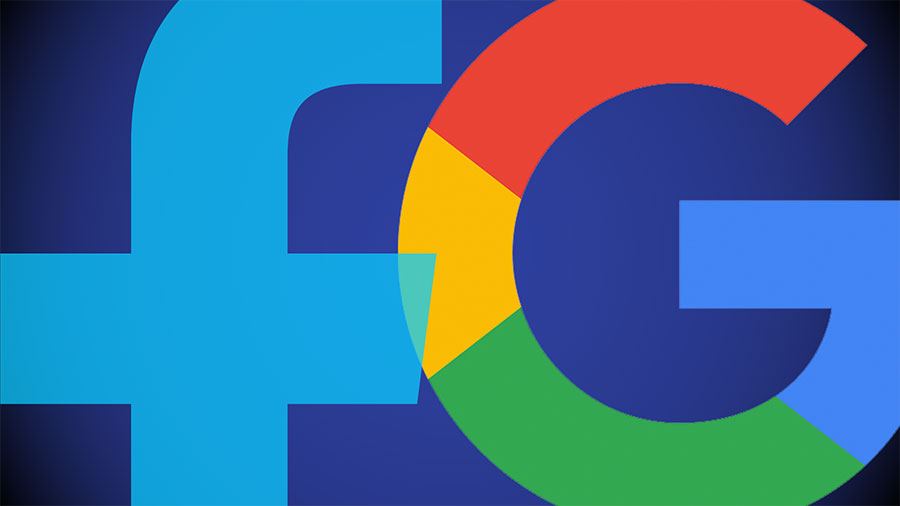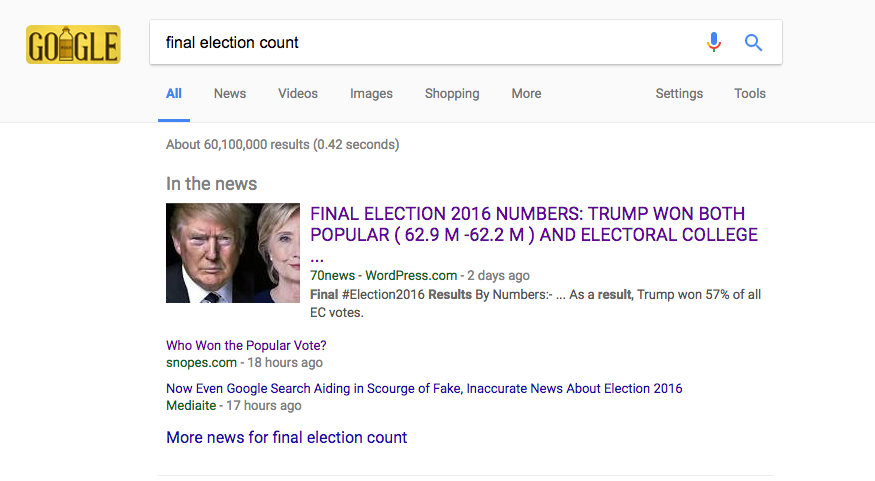After laying off the massive stream of fake news due to biased filtering, both Facebook and Google are looking toward redeeming themselves by supporting a new system to verify news content posted online.
Google has recruited 15 French news outlets, among which are Le Monde, L’Express, and Agence France-Presse (AFP), to include them in a new startup that will verify content shared online, something that is believed to have influenced the outcome of the U.S. presidential election. A similar plan is prepared for Germany, which will see its parliamentary elections take place on September.

Google and Facebook won’t allow fake news to be weaponized
To date, tech giants Facebook and Alphabet’s Google have labeled themselves as neutral when it comes to politics, but after the U.S. presidential campaign, it was obvious that they had to intervene to make the distribution of information uniform when it comes to truthful facts and articles.
The same problem that the U.S. experienced in the eve of the presidential campaign is now occurring in Western Europe, where there is an intense dispute about who has the lead when it comes to polls and perception with the public. This appears to be heavily influenced by the main source of news for younger audiences: the internet and social media. Germany, on the other hand, took cards on the matter and proposed a law enforcing the removal of fake news within 24 hours after they are flagged.

Currently, there are 24 million Facebook users residing in France, which is equivalent to a third of the country’s population. It is the intention of Facebook to encourage users to flag news as fake or truthful, to then have them verified by other organizations.
Reportedly, some companies weren’t inclined to join Facebook’s campaign. One of these media sources, Le Monde, announced having listed at least 600 websites that can be considered to be “unreliable.” This same approach is being used by leftist newspaper Libération. Le Monde indicated that many news outlets are afraid that their fact-checking personnel would be put under too much strain, but ultimately they decided to join the system because Facebook would reduce the workload by applying its news feed algorithms.
CrossCheck
Google, on the other hand, has proposed a new system known as “CrossCheck,” also supported by Facebook, which would allow users submit links to content of dubious veracity so they can be investigated to see whether they can be trusted.
The project was revealed at News Impact Summit in Paris. CrossCheck will aggregate at least 17 French newsrooms, Facebook’s CrowdTangle and other groups and tools to verify shared news. The objective is to ensure hoaxes, rumors, and false claims are quickly taken down from the web, just like misleading and confusing stories that are reported by a significant number of users. For the occasion, this will require the work of French journalists and people from the whole world to work together by verifying “photographs, videos, memes, comment threads, and news sites.”

The initial idea came from a First Draft Partner Network meeting in September 2016, then CrossCheck evolved to include AFP (Agence France-Presse), BuzzFeed News, France Médias Monde (via Les Observateurs de France 24), France Télévisions, Global Voices, Libération, La Provence, Les Echos, La Voix du Nord, Le Monde, Nice-Matin, Ouest-France, Rue89 Bordeaux, Rue89Lyon, Rue89 Strasbourg, Storyful and StreetPress as its earliest partners.
Each newsroom will contribute in its area of expertise, resources, and knowledge to ensure that the project takes full speed and the verification is as strong as it can be.
CrossCheck will employ Facebook’s CrowdTangle, which is a freely available tool for spotting influencing content on social media. It will also make use of Spike, a tool created by NewsWhip similar to CrowdTangle. There’s also Google Trends which can analyze tendencies concerning the election on a country-wide basis, Hearken’s Engagement Management System to keep in touch with the public, Meedan’s Check which is a fact-checking platform, SAM’s social media tools, and Le Monde’s Le Décodex, which is the news outlet’s database that has news sites classified based on their veracity.
CrossCheck is expected to go live on Monday, February 27. Newsrooms and journalism students that wish to take part in the process may contact [email protected].
First Draft News encourages people to become CrossCheckers to post elaborate debunks and propose more solutions. The organization recommends following @CrossCheck on Twitter, to like @CrossCheckFrance on Facebook and sign up to their First Draft email list
They also encourage journalists and journalism students to pay mind to their 10 tips and tools for newsgathering and verification to tackle news bias. Because people must collaborate in verifying the news, fact-checking has become of need seeing that now more than ever it is easy to be reached and stimulated by fake news stories.
Source: Reuters
